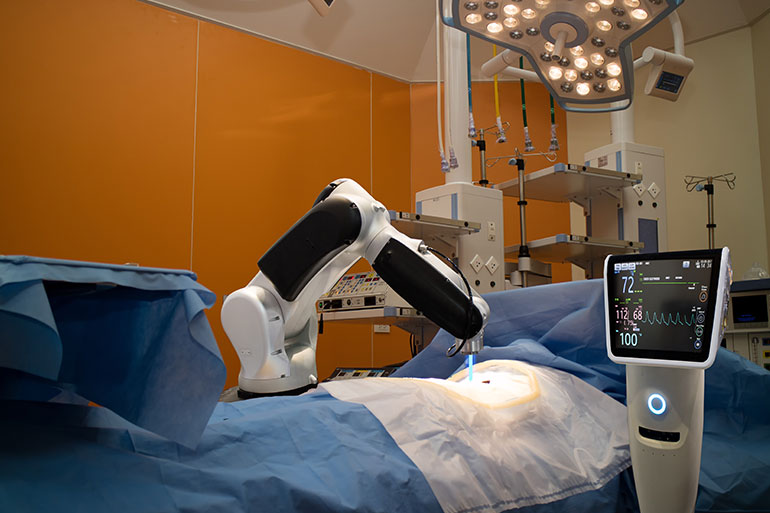
AI Powers Remarkable Advancements in Healthcare: Diagnostic Accuracy SoarsAI Powers Remarkable Advancements in Healthcare: Diagnostic Accuracy Soars Artificial intelligence (AI) has emerged as a transformative force in the healthcare industry, unlocking unprecedented advancements and revolutionizing diagnostic accuracy. Driven by massive datasets, machine learning algorithms, and sophisticated computational capabilities, AI is empowering healthcare professionals to make more informed decisions, improve patient outcomes, and enhance overall healthcare delivery. Precision Diagnostics One of the most significant impacts of AI in healthcare is its ability to enhance diagnostic precision. Traditional diagnostic methods often rely on subjective observations and experience, leading to potential errors and uncertainties. AI algorithms, on the other hand, can analyze vast amounts of medical data, including patient history, imaging scans, genomic information, and electronic health records. This comprehensive analysis enables AI systems to identify subtle patterns, detect anomalies, and make highly accurate diagnoses. For instance, AI-powered algorithms have been developed to detect cancer at earlier stages, leading to improved treatment outcomes and survival rates. Similarly, AI has demonstrated exceptional accuracy in diagnosing neurological disorders, eye diseases, and cardiovascular conditions, among others. Automated Image Analysis Medical imaging plays a crucial role in diagnosis and treatment planning. AI-powered image analysis tools can automate the interpretation of medical scans, such as MRI, CT, and ultrasound images. These algorithms can identify and quantify abnormalities, measure anatomical structures, and segment tissues with remarkable precision. Automated image analysis reduces human error and bias, improves the speed and consistency of diagnosis, and enables healthcare providers to focus on more complex tasks. AI has also found applications in pathology, where it assists pathologists in identifying and classifying diseases from biopsy images. Personalized Medicine AI is revolutionizing personalized medicine by enabling the identification of tailored treatments based on individual patient profiles. AI algorithms can analyze genetic information, lifestyle data, and environmental factors to identify unique risks and determine the most appropriate treatment strategies for each patient. This individualized approach to healthcare optimizes treatment outcomes, reduces side effects, and improves patient compliance. AI-powered platforms can also monitor treatment progress, adjust medication dosages, and provide personalized health recommendations. Conclusion The integration of AI in healthcare has led to remarkable advancements in diagnostic accuracy. AI algorithms, fueled by vast datasets and sophisticated computational capabilities, enable healthcare professionals to make more precise diagnoses, automate image analysis, and deliver personalized treatments. These breakthroughs have improved patient outcomes, enhanced healthcare delivery, and paved the way for a future where AI will continue to revolutionize healthcare. As AI evolves, we can expect even greater advancements in diagnostic accuracy and the transformative impact of AI on the health and well-being of society.
Posted inNews